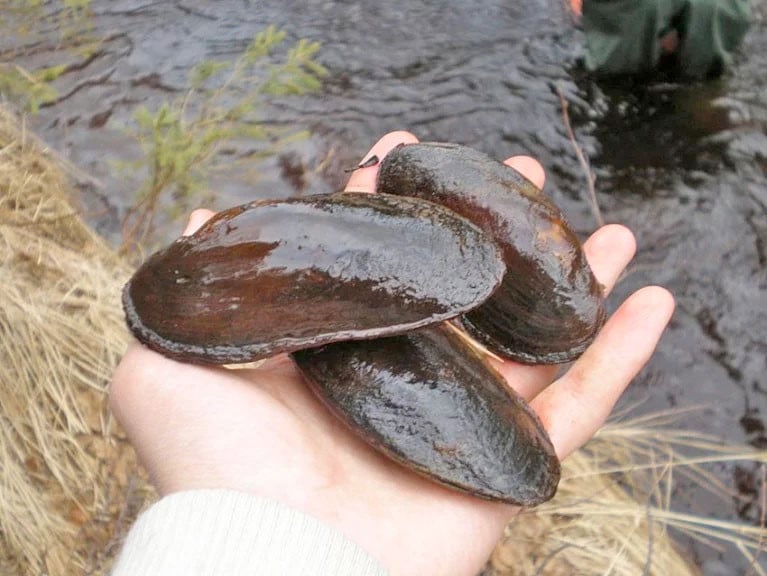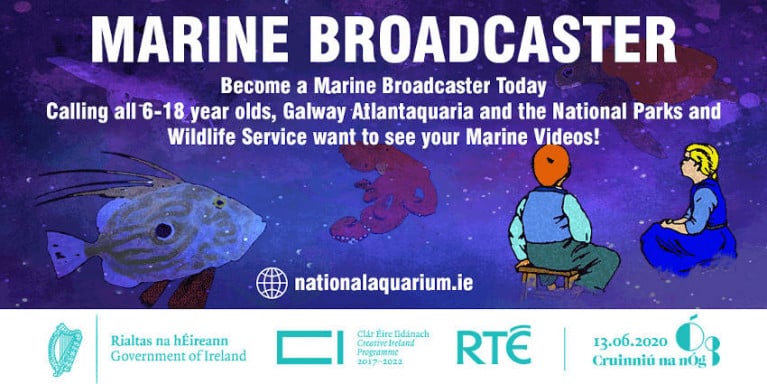Displaying items by tag: NPWS
New Breeding Programme Aims To Safeguard Rare Freshwater Pearl Mussels
A new joint initiative between the Marine Institute and the National Parks and Wildlife Service (NPWS) aims to revitalise the freshwater pearl mussel through a pilot captive breeding programme.
Pearl mussels are capable of surviving for up to 140 years, making them Ireland’s longest living animal.
But environmental changed have put them on the verge of extinction. The species is listed as Endangered on the IUCN Red List, and is one of the 365 most endangered species in the world.
In Ireland, 19 Special Areas of Conservation (SACs) have been designated in an effort to conserve the pearl mussel in its native habitats.
‘We are hopeful that over time this joint project will lead to a positive outcome for the freshwater pearl mussel in Ireland’
And the new programme — to be based at the Marine Institute’s Newport Research Facility in Co Mayo, close to one of the last remaining reproducing populations of freshwater pearl mussels — is hoped to safeguard the survival of the rare species into the future.
“Captive breeding programmes are already well established in several countries, and we are hopeful that over time this joint project between the Marine Institute and the National Parks and Wildlife Service will lead to a positive outcome for the freshwater pearl mussel in Ireland,” said Dr Áine O'Connor of the NPWS.
One of the reasons for the decline of the freshwater pearl mussel is the low survival rate among juveniles, which are extremely sensitive to slight changes in environmental conditions. This is leading to an ageing population, not capable of replenishing itself.
Juvenile survival is dependent on a clean riverbed, with little silt, sediment or algal growth. These mussels also have a very unusual life cycle, in that they are dependent on the Atlantic salmon and brown trout to host their larvae, called glochidia, for about 10 months. The captive breeding programme is targeted at this crucial life stage.
‘This small experimental population will be given a year to see if the juveniles grow to the stage where they can settle themselves in a suitable habitat’
Work on the programme began this past June when a tank in the Marine Institute’s hatchery was set up with 300 juvenile salmon. In July, 30 adult mussels were removed from the Newport River and transported to the tank.
The project team are currently waiting to see if mussels will release glochidia and whether these will naturally attach themselves to the gills of the salmon.
If successful, the Marine Institute and NPWS will maintain this small experimental population for a year to see if the juveniles grow to the stage where the mussels can detach from the fish and settle themselves in a suitable habitat.
“Historically, we know the Burrishoole catchment [in the area around Newport] contained pearl mussels, which gives us some confidence that the water supply to the hatchery on Lough Feeagh is suitable for long-term maintenance of the mussel populations,” said Marine Institute zoologist Dr Elvira de Eyto.
The pilot captive breeding programme is a partnership between the Marine Institute and NPWS in conjunction with freshwater pearl mussel specialists Evelyn Moorkens and Ian Killeen.
Become A Marine Broadcaster For Cruinniú Na nÓg
To celebrate Cruinniú na nÓg 2020 this Saturday 13 June, the National Parks and Wildlife Services and Galway Atlantaquaria are inviting 6-18 year olds to become marine broadcasters.
All you have to do is record a short video about a marine topic, such as an animal or plant from the seashore, and send to [email protected] before 5pm tomorrow, Friday 12 June. The first 50 entries will also receive a free beginner's guide to Ireland's seashore.
Videos should be no longer than two minutes and your videos will be uploaded onto a Marine Broadcaster playlist on the Galway Atlantaquaria YouTube channel, with a selection to be showcased as part of Cruinniú na nÓg this Saturday.
The channel also provides some inspiration to help you make your own broadcast. For more information on how to enter, see the Galway Atlantaquaria website HERE.
Galway Councillors Point Finger At NPWS Over Flood Relief Barriers
#Flooding - Galway county councillors have blamed the National Parks and Wildlife Service for blocking flood prevention measures.
Galway Bay FM reports on a special sitting of Galway County Council, which heard a number of members take the NPWS to task over what they perceived as putting protections for wildlife over those of hundreds of families in the county affected by the recent severe flooding along the Shannon.
Cllr Michael Connolly claimed relief works planned for Meelick were halted over concerns with a single fish species – while Cllr Michael Fahy scoffed that digging emergency channels was more important than "bats and the bees".
Galway Bay FM has more on the story HERE.

























































